Chip Kinman - The Great Confrontation
$ 10.00
Limited edition on color vinyl. First come, first served. No guarantees.
Ancient Greek philosopher Heraclitus is attributed with the quote “The only constant in life is change” and nothing sums up Chip Kinman’s latest creation-or his entire career- quite as well. Like each of Chip’s musical incarnations, The Great Confrontation seemingly has no connection whatsoever to the work that preceded it...unless the listener is savvy enough to spot the deeply buried but always present through lines.
The tracks on this album are wildly alien in every applicable sense of the word. The opener, “Let’s Go, Dark Shark” sets the scene with drippy, space age chirping that slowly degenerates into slo-mo sludge like an astronaut running out of oxygen. “Ciao Raggazzi”- not to be confused with Jay And The Americans’ “Good Bye Boys, Good Bye (Ciao Raggazzi, Ciao)” is a derailing train of a song. The vocals are spoken in Italian and presumably, snatches of conversation sampled from a Mafia crime film.
Speaking of crimes, Chip murders a couple of standards in cold blood purely for his own amusement. Both are traditional and absolutely unrecognizable. “Round About Danny” is his take on the Irish ballad Danny Boy, written in 1913 and recorded relentlessly through the years by everyone from Conway Judy Garland to Conway Twitty.
“I’ve made the most beloved ballad known to man practically unlistenable,” Chip deadpans, “You would do the same given the chance.”
The other’s a gospel hymn, Will The Circle Be Unbroken, originally performed by The Carter Family in the 1920’s. Again, Chip’s sardonic sense of humor comes into play: “I thought the Carter Family version was too long at three minutes and seven seconds so I shortened it...by one second. Otherwise I left it alone.”
Imagine both songs sans vocals, filtered through a particle accelerator beam shot by a rogue robot from a 1950’s sci-fi B movie. Then pretend they got reinterpreted by hippie in a ratty flea market cape who borrowed a Moog synthesizer so he could emulate Rick Wakeman from the prog rock band Yes. The hippie not only had no working knowledge of playing a synthesizer, he was tripping his brains out on Owsley’s premium LSD.
This album is all a huge departure from anything he’s ever done; but for Chip, that’s normal. I’m sure of this because I’ve known him since 1977, witnessing all his musical mutations and in many cases, the sources that inspired him to prolifically create original, cohesive and boundary-pushing sounds. As the old saying goes, what he’s done consistently is often imitated but never replicated.
Always a bellwether, Chip and his brother Tony were not only lifelong rock’n’roll and Americana fans, they were they were also fearless explorers as well as perpetual agents of change. The moment The Dils busted out fully formed in 1976, they had a profound influence on the nascent West Coast punk scene.
In 1981 they moved to Austin, Texas, forming Rank And File. Blithely abandoning their highly political stance in favor of country music, they literally horrified their lefty-punk fans. At the same time, they pioneered cow punk, a genre which included bands like Tex And The Horseheads, Blood On The Saddle, and my own, The Screaming Sirens. The cow punk movement grew, and as it did, Rank And File started leaning in other directions. I vividly recall a gig we did together in a Sacramento club packed with rockabilly chicks in frilly vintage gingham and their bolo tie-bedecked boyfriends. My band joined Rank and File for a double encore, playing Calling Doctor Love by Kiss and Ted Nugent’s Cat Scratch Fever. While we were having a blast onstage, most of the crowd practically clambered over each other in their haste to leave!
It almost goes without saying that nobody was prepared for what came next. Blackbird, whose sound was a jangly, fuzzed-out amalgam of The Stooges, Kraftwerk, and sixties garage rock, was just ahead of what would come to be known as the Industrial genre. Once again, the Kinman’s stylistic restlessness kicked in. Blackbird was followed by Cowboy Nation, a tip o’ the ten gallon hat to the American West, after which came the bluesy Ford Maddox Ford. Through all of these combos and continuing with this album, Chip has remained true to his punk roots...even if that isn’t obvious to the listener at first. Chip describes the track San Francisco Fog 1977 like this: “If you want to know what it feels like to walk around San Francisco all night with Will Shatter, speeding your brains out, listen to San Francisco Fog 1977. You are there.” Of Golden Robot, he says, “It is a road map of how to destroy your masters before they destroy you.”
Obviously, destruction-and creation are recurring themes in Chip’s life. Among his many talents, perhaps the strongest one is the ability to fully absorb the essence of the music he loves, before turning it into something entirely new. Chip’s musical signature is having no signature whatsoever, which is a glorious thing.
“If this record doesn't destroy all that I've done”, Chips says, “Then it must have already been destroyed and I have failed in my pursuit of folly.”
Embrace the Brave New World that is The Great Confrontation. Allow the mothership beam you up into a galactic world of clicks, beeps, hums and the sinister drones of impending doom. Let it become your breathing apparatus; you will not survive without it.
- Pleasant Gehman
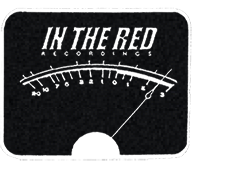
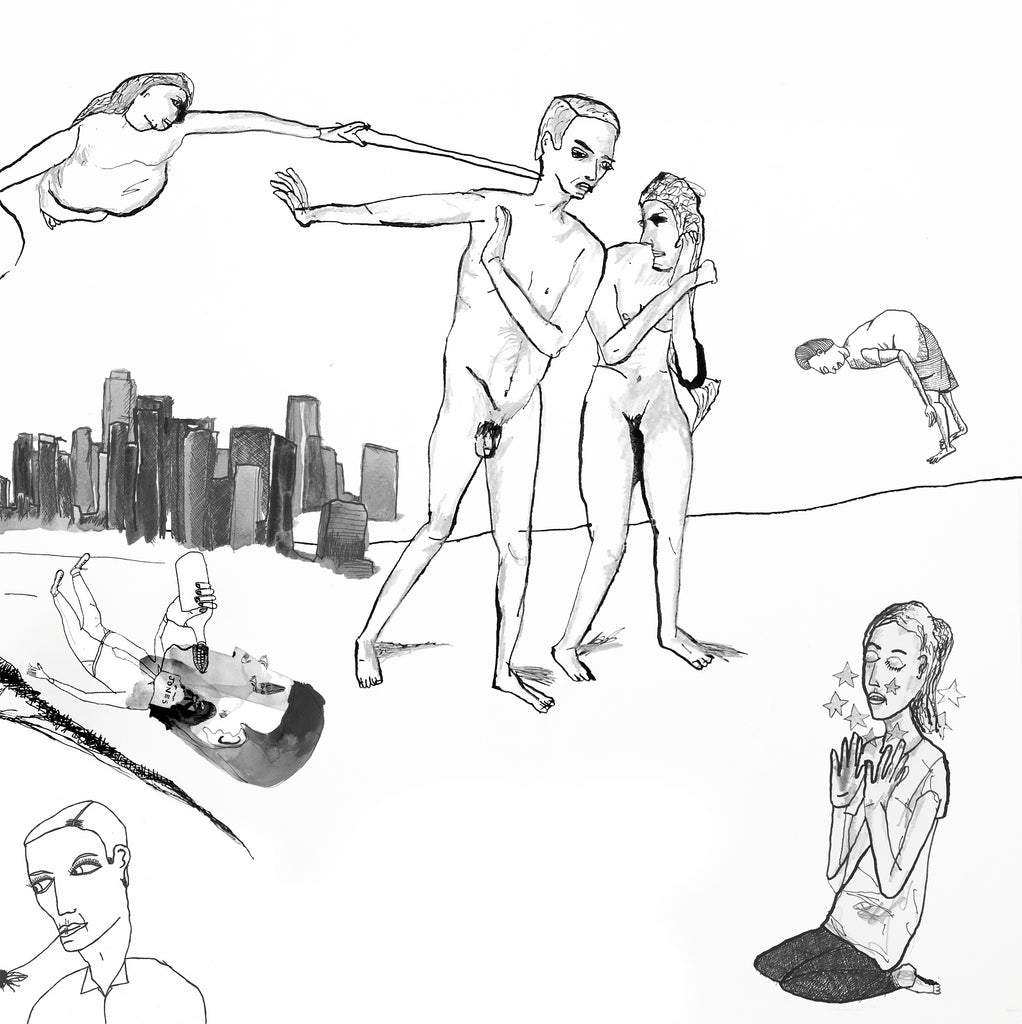
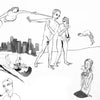
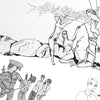
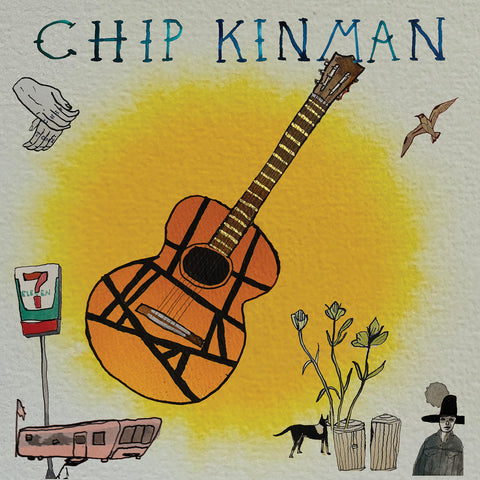
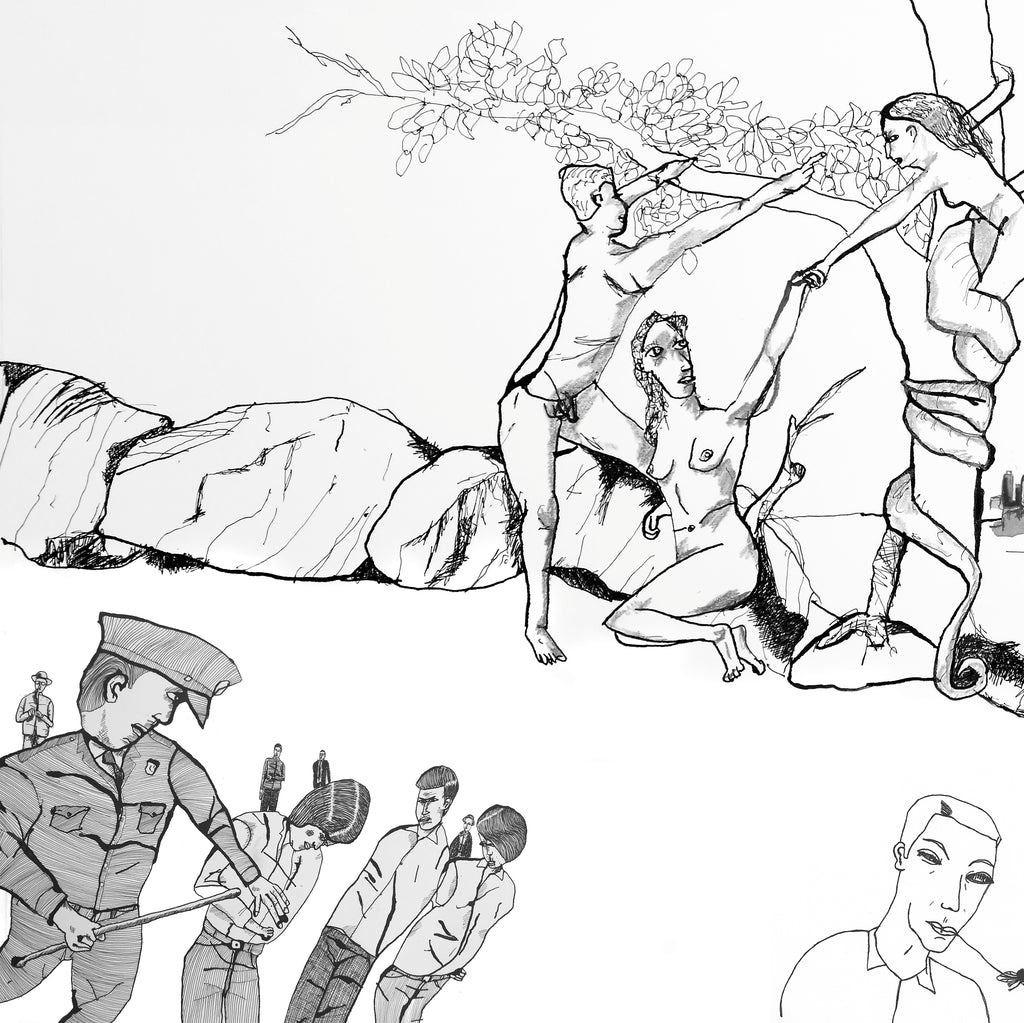
Share this item: